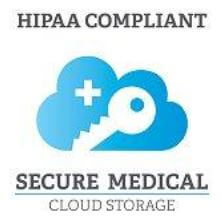4 Core HIPAA FAQs for Professionals and MSSPs


The HIPAA (Health Insurance Portability and Accountability Act) of 1996 was released as an effort to develop the health insurance portability. In today’s date, HIPAA is having guidelines and regulations for reducing cybercrimes and simplify administration. By default, this act is applicable for healthcare professionals and employees who are having rights to work with patient’s record. But, businesses who are collaborated with healthcare professionals should also comply with Health Insurance Portability and Accountability Act. This blog is rendering answers on HIPAA FAQs for professionals and managed security service providers, which are raised by them while appointing the compliance for the first time.
Frequently Asked Questions Based on HIPAA Compliance
1. What are the objectives of HIPAA security and privacy rules?
Since April 14, 2003, the majority of the health plans and healthcare providers cover new rules to meet the compliance requirements. Following points describe benefits of HIPAA compliance for security:
- It adds up more security control over the patient’s information.
- A boundary is created to access and reveal health records.
- Establishment of proper safeguards takes place for achieving protection over the health information privacy by healthcare providers.
- HIPAA compliance creates limitations for disclosing and releasing the information of patients.
- Authorized patients are allowed to determine that how their records are getting used, and gain knowledge about the disclosure of their data.
2. To whom does HIPAA apply? What all entities are covered in Health Insurance Portability and Accountability Act?
The answer to this HIPAA FAQ is associated with description of HIPAA privacy rules. They are applied in the healthcare clearinghouses, health plan, and other healthcare providers who are transmitting health information through cloud services. It involves different claims, referral authorization requests, benefit eligibility inquiries, and other sets of transactions. These transactions need to follow standards, established by DHHS under HIPAA transactions rule.
It is essential to learn that several research enterprises, which are individually dealing with health record will not comply with the HIPAA privacy rules. It is because such firms are not categorized to be covered under entities. The Privacy rules are not directly responsible for researchers who are doing research with the firm. They are having complete right to collect, access, generate and share the patients records for one or another requirement. Well, it is possible for researchers to rely on the covered entities for the research support or in the form of resources, involved in research databases or research responsibilities. This might impact the relationship between the covered entities.
3. Why should managed services providers comply as the Business Associate?
The answer to this HIPAA FAQ is based on the fact that why MSSPs should adopt compliance. Well, organization associates are the one who gives support to the covered entities. They help entities to perform their responsibilities in an appropriate manner, keeping a track of PHI use, storage, and transmission. The business associates are like subcontractors who support or do their duties for other enterprise associates. It is true that MSSPs are responsible for dealing with healthcare information security protection and threats. This duty of MSSPs is for a particular entity (like medical clinic), considered like the business associate. Apart from healthcare firms, managed security services providers are providing security to other fields of organizations like IT organization, which provides automatic software to enter and maintain patients record. For an MSSP, other companies are also considered as a business associate. Enterprise associates get in touch with, or get access over PHI, leading to arise in the adoption of HIPAA compliance rules and regulations.
4. What are the requirements of MSSPs to be the HIPAA complaint?
This HIPAA FAQ answer says that providers need to follow technical, administrative, and physical safeguards standards that are under HIPAA compliance rules. Following points will help them in learning basic guidelines to become HIPAA compliant:
- Technical standards are introduced for controlling work on the computer system to maintain ePHI security. The set of rules comprise of password encryption, enabling only the authorized workers to work with ePHI, adopt network security method to safe PHI sharing, and setup firewall for intrusions prevention.
- Policies and processes that are decided by enterprises come under the administrative standard. Enterprises are advised to deeply analyze the requirements for protection of their confidential data. They can conduct meetings, surveys, and do other sorts of activities that enables providers to code security accordingly. Basically, companies need to define and note down that how an entity will comply with act.
- Physical HIPAA standard is released to keep the track of working with PHI. This permit authorized individual only to access PHI. This is introduced to have control over how employees of MSSPs are using their customer’s record, how things are getting accessed that contains PHI, and how to transfer, remove, and discard software & hardware comprising PHI in a right manner.
Conclusion
Common HIPAA FAQs are illustrated in this blog, which helps professionals and MSSPs. These will help them in learning the importance of HIPAA Compliance for business organizations, leading to enhancement in cloud data security.